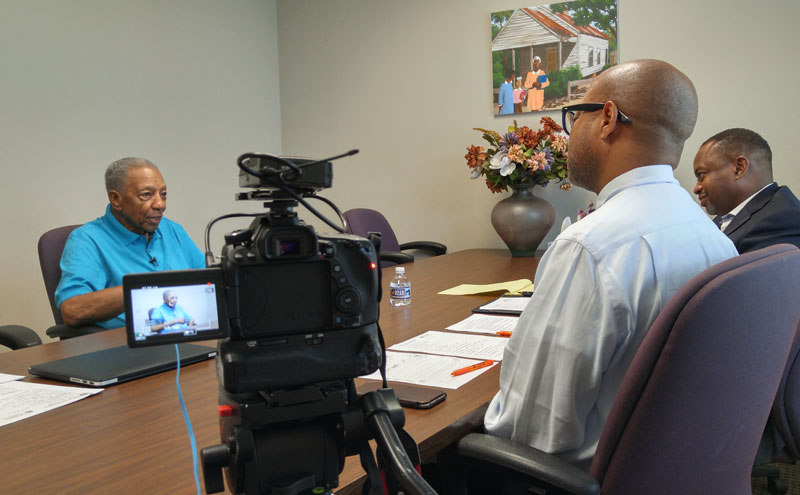The Teachers in the Movement Institute was amazing, and I have definite plans on how I might use oral histories in my class. First, I am teaching African American literature for the first time in my career. I have always had a passion for learning about the Civil Rights Movement, and I designed a course that will use John Lewis’ autobiography as the central textbook for the movement.
I have seen firsthand the power of oral history, after I was able to secure two big guest speakers to come to our high school over the last decade. John Carlos from the 1968 Olympics came to our school to discuss his role in the movement. We also were so blessed to hear Ernest Green, one of the Little Rock Nine, tell his story.
Part of what I really liked about the oral histories is the human element. It’s one thing to learn about a famous person in a textbook. It makes things impressively relevant to hear stories passed down over time. There are at least two areas where we can use these oral histories in my class. The first is that I was motivated to find a book (and companion DVD) on oral histories from the Jim Crow South. A group of professors had its graduate students commit to research in eight states in the South, where they conducted over 1,200 interviews with everyday people who lived through segregation. I’m quite a ways into the book, and it’s very moving. I think that it will be very meaningful to my students to hear stories directly from people who lived through these events.
Finally, there was serious pushback with integration in Prince Edward, Virginia, and I’ve started to research some of that history. I’ve located someone who could potentially be a guest lecturer to speak directly to my students and pass down that history. I think that his story will truly help my students to understand what happened in our own state, not too far from our own homes. Also, I’m not sure if this will work, but I’ve been exploring a connection to the daughter of the mother in the story of Loving. Those events took place about an hour away, and the trial took place in Richmond, where I teach. I would love to make that contact and have the daughter speak to us. These are some of my goals to help make oral history a key part of my course. Thank you so much for the Institute. It was such a wonderful experience.


